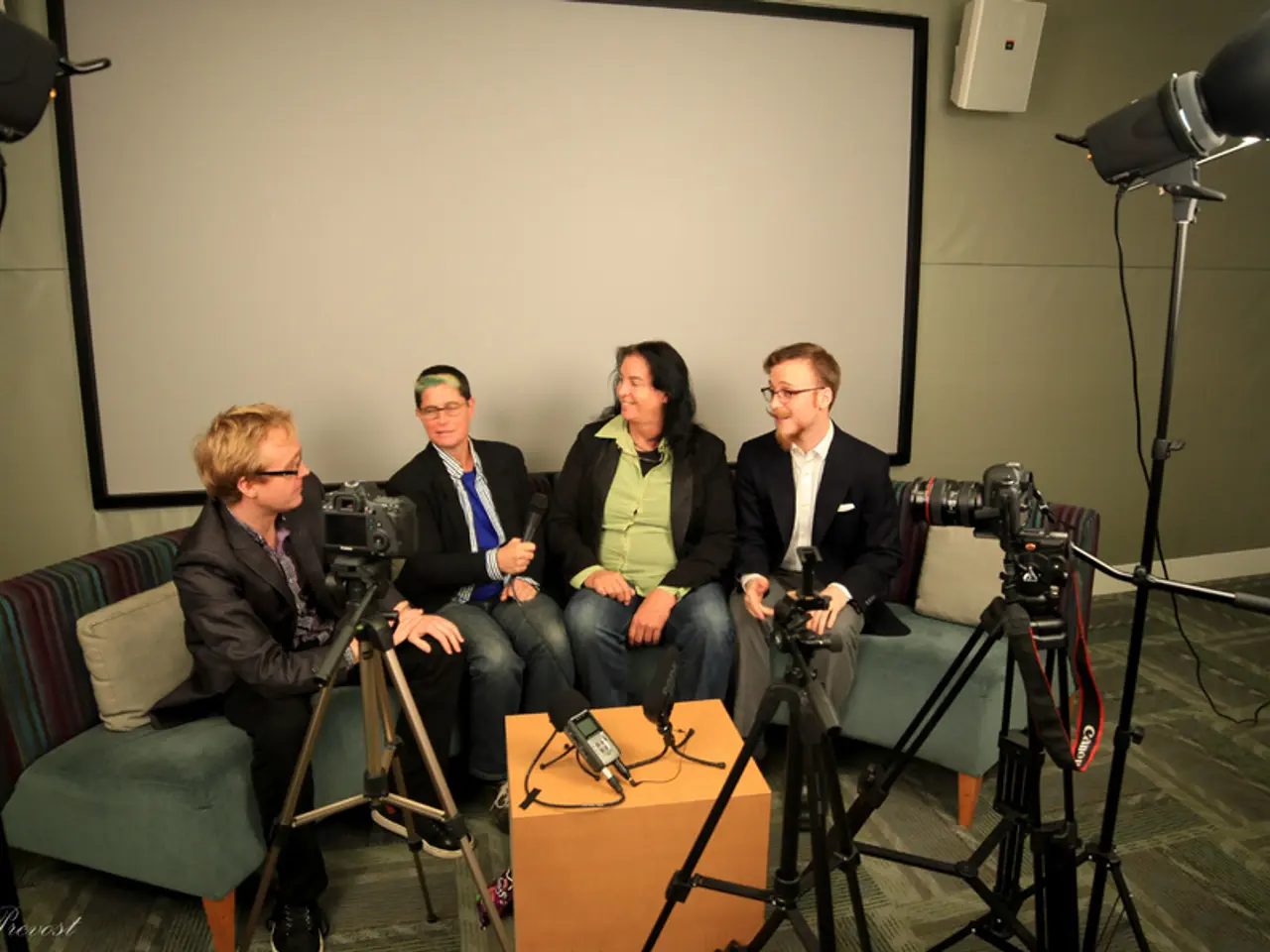Exploring the emotional depths of jest: examining the educational impact and display of comedy
In an intriguing new study, researchers delve into the world of comedy education and performance, seeking to better understand the comedic learning processes and performances. The study introduces the concept of 'fielding hilarity', a unique approach that focuses on actively capturing, responding to, and analyzing moments of laughter during live or recorded performances.
"Fielding" in this context refers to the interactive and dynamic engagement with the comic moment—how performers and observers identify, share, and reflect on instances that cause laughter. The collective analysis encourages collaborative discussion among performers, educators, or audience members to evaluate what triggers humor, enhancing understanding of comedic timing, delivery, and effectiveness.
The study employs complex mappings of affective intensity in stand-up comedic performances, moving beyond reductive interpretations of laughter as a simple stimulus-response. To achieve this, the authors use electro-dermal activity (EDA) sensors, a method that measures skin conductance, which correlates with emotional arousal. By combining EDA data with collective observational analysis, comedy educators and performers gain a richer, data-informed insight into how humor operates in real-time and how different comedic elements affect audience engagement.
The EDA signal is separated into two parts: tonic signal and phasic signal, each providing crucial insights into the affective dimensions of comedy performance. The analysis of EDA data was a significant part of the study's methodology, with the data being analyzed using a biometric software platform between sessions.
The study was conducted through workshops with undergraduate acting students in Manchester, UK. Workshop participants included theatre students from the city, who wore EDA sensors during their performances. The workshop involved a collective analysis of students' performances augmented by EDA sensor data, providing a unique blend of ethnographic accounts and data-driven insights.
Drawing on Suzanne Langer's process philosophy and affect studies research, this article focuses on the affective dimensions of comedy education and performance, offering a fresh perspective on the field. By employing new empirical methods and advanced analytical techniques, the study aims to deepen the study and practice of comedy, improving both teaching methods and performance outcomes through empirical and subjective feedback loops.
- The application of advanced technology like EDA sensors in comedy education and performance can provide comedy educators and performers with valuable insights, allowing them to understand the affective dimensions of their performances, such as science, health-and-wellness (mental health through laughter), fitness-and-exercise (physical responses to laughter), and technology.
- By incorporating fielding hilarity, data-driven insights from EDA sensors, and Suzanne Langer's process philosophy, this study aims to improve the practice of comedy, making it more informed, effective, and appealing to both performers and audience members, further blurring the lines between science, health-and-wellness, fitness-and-exercise, and technology.




